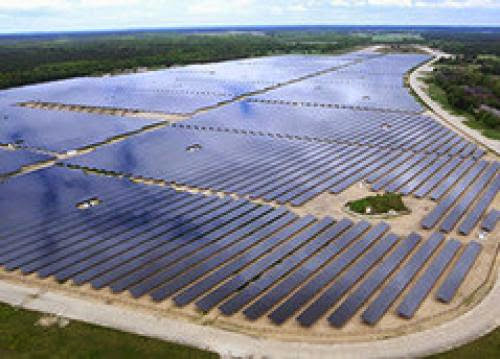
Solar energy has become a key industry in the past years. Not only for its attractive benefits to the environment, but also for its decreasing price. Opposite to other sources of energy, whose forecasted prices are alarming and threatening to many businesses, solar energy technology is developing fast, and the prices are going down.
While the European Union started as the leader in the solar power industry, with Germany and Italy as main players, China has quickly followed the trend and is now a strong competitor in the industry. China has turned into a mass producer of solar PV, and since 2008 the cost of such technology has dropped by 80%. What used to be a luxury is quickly turning into an affordable and attractive solution to many businesses and families.
Furthermore, one of the main downsides that kept investors away from solar energy is that this source is only productive during the day. Solar PV panels turn sunlight into electricity, but lack the capacity to store it and provide it during the night. However, as more interest is paid to this technology, a lot is being done to further develop it and improve its features. Currently solar panels have greater efficiency than 10 years ago, and most importantly, storage options are already available.
Ion-lithium batteries are being deployed to enable storage of surplus electricity from solar panels. These batteries make it possible to still have access to green electricity during the night, or when there is no strong sunlight. This new feature is specially attractive to private residences, that have now the chance to stay away from the grid by generating their own electricity with a domestic solar panel installation. Some houses also incorporate solar thermal solutions, which are used for heating purposes.
Storage options are also being used in solar farms in China, with quite successful results. However, these projects require large investments which need to be backed by strong governmental support and institutions. This is one reason why despite its great solar energy potential, Africa is not yet taking advantage of the sun to provide electricity to its people. The role of government regarding incentives for renewables, or subsidies to fossil fuels, depicts completely different scenarios in different countries. For example, while Germany does not have as much sunlight as some African countries, it does count with the support of the government to incentivate investments in the renewables industry.
South Africa is slowly catching up with solar power development by making big investments in solar farms. Algeria is another country with strong eyes on solar energy. However, as shown in one report published by the EU under the name PV Status Report for 2014, subsidies for fossil fuels are still a lot higher than those for renewable sources of energy. In any case, if we only take renewables, solar energy is outperforming all other green sources. In 2013 it represented almost 55% of all new renewable energy investments worldwide.











0 comments:
Post a Comment